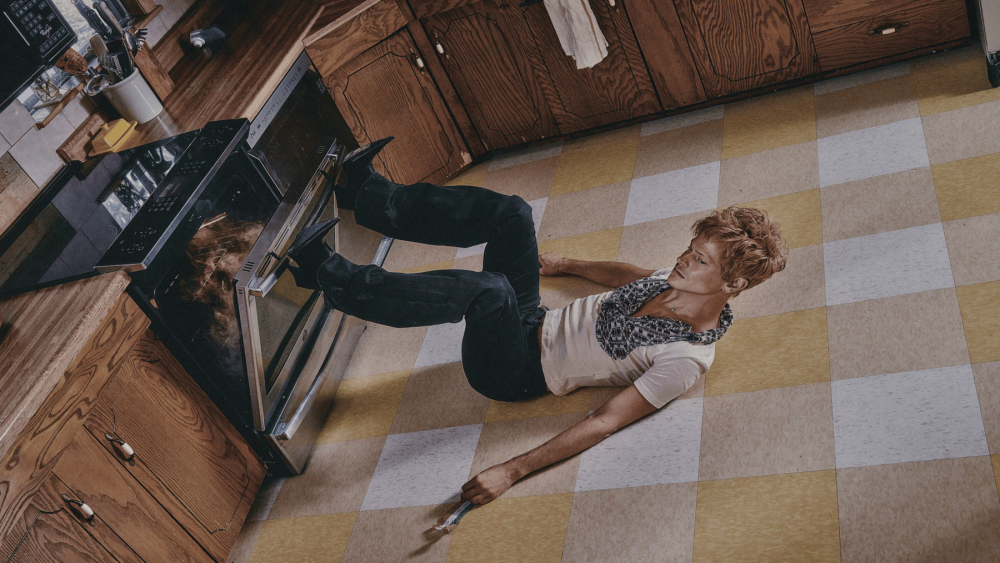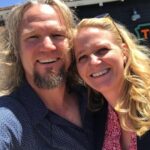When singer writer Mike Hadreas sits down with his therapist, he admits that he often does not know where to start with his emotion-which may not be surprising for an artist who has worked primarily by himself during six albums and 15 years.
But for his latest effort, “Glory”, Hadreas – known in the music world as Perfume genius – Opened his voice and emotions, as well as his recording process, in what has been described as his first “band” album, with artists like Aldous Harding together with his long collaborators Blake Mills and Alan Wyffels.
“I don’t know if I deliberately did, but it was meaningful to build the songs felt more collaboration in ways they had not been in the latest records,” says Hadreas Amount.
However, the album directly tackles feelings about isolation, so Hadreas needed to start completely alone when his partner, Wyffels, was outside the city. It was the only way to meaningfully get involved in the work – and what he really felt inside.
“I was just home, didn’t light the lights and got the curtains drawing. I could just go really deep into it,” says Hadreas. “When no one is nearby, I can follow all these impulses. But the last records, demonstrations, stopped being really full. I did it in a world -building way in addition to just the chords and lyrics to make room for the band, Blake and Alan, to see what we found together later.”
In previous items, Hadreas focused on trying to count on past and old memories. But when you print the texts to songs like “It’s a Mirror”, which explores what it’s like to just feel brave and confident when he plays or writes, he realized that the new record would be relevant, not reflective.
Before the album’s release, Amount Talked to Hadreas about all the above, his previous album and how he reflected on the things that are important for him to maintain in life – both as an artist and not – before the Trump administration.
You recently celebrated the 10th anniversary of “Too Bright” and with the opening song “It’s a Mirror”, you really pop into your relationship with fame or success and are on the other side of the curtain. Was it something you consciously thought about when you sat down to write these songs?
When I printed the lyrics to the album, I realized themes that had repeated a lot throughout the record. But I knew when I wrote that everything seemed to be relevant. It was a lot about how I feel now and the things I had thought of and obsessed or spiral over the past year. It did not try to count on old memories or be a projection in the future.
Before covid and in recent years my thoughts were really wild and I did not care if they were not sensible with my life. I have a more difficult time now that now separates my life from the places I go to creative. I couldn’t separate them this time. Part of it was to realize that “it is a mirror” is about how brave and confident that I feel that I am playing or writing and how willing I am to go to places that make me uncomfortable or scared still and how unwilling I am to do it otherwise.
I am dramatic, but there are so many things I can do for my health or to be a better friend or to be more linked and loving to the people around me. Like when you tour you are just banging and working really hard and reduced to all these baby feelings because you are tired and hungry. But you just do it. And when I’m tired and hungry at home I’m, “Well I’m not leaving.” I am only in full sedative position.
You enter ‘Glory’ after working with the point for Zia Anger’s ‘My First Film’ and also contributed music to Luke Gilford’s ‘National Anthem.’ When you got back to your own items, was there an attribute you wanted to transfer from the more instrumental work?
Well, both films are interesting because you go into someone else’s world. I know Luke and Zia really well, so before they sent me the script I had an understanding for them and knew what they like about me and why they would potentially want to work with me – or my idea of why. It is difficult because you have to keep your spirit because that is why they ask you to be involved in it, but then you also have to go into their cause and find the balance to insert yourself but just to improve them. I always think of all the music I do as soundtracking or a point for a feeling in my body that I want to stay in.
You also work with Cody Critcheloe again, which directed the iconic “Queen” music video. What did you go back together to collaborate on music videos for ‘It’s a Mirror’ and ‘No Front Teeth’?
We have been friends all the time. We laugh so much and I just feel a real relationship with him. I just completely trust him with my ideas and one of his. It’s really deep, honest. I feel he really knows me and he knows what I can do and he also knows what I will like of these things. It is in the same way as the therapy, it is difficult for me to formulate but I think most of it is confidence. And Cody is not bitter. He is excited. We both want to have fun and do something stupid, but with a cordial through the line. Many people are really bitter and they do not move towards things that will make them feel something. Cody and I are both like dirty children. We are both childish but we are really vulgar and disgusting. I like it.
While this album is about the present, you also bind it thematically to your previous albums. For example, to take back your Jason character for ‘Capezio’, which previously had his own song on “Put my heart immediately in fire.” What made you decide to bring back that character?
Both characters in each song are specific people who are not called Jason, but they are a similar archetype of dynamics that I have been to with men who are more retained or traditionally masculine or straight. It makes me think a lot about what is actually going on, so I have beaten them to an archetype.
They are just people, but I’m kind of playing roles and dynamics – sometimes to get off, sometimes because of shame. Sometimes I use them for fun because it is exciting to just go into all your internal thoughts and stories about sex and relationships you like. Sometimes it is fun to just assume them even if they have deep, thick connotations. Then sometimes I am really pissed off about them, like: “Why am I attracted to these things? Why would I even want to do this?” For intellectually, I don’t get anything from this. I called them both Jason even though they are real people they knew they as archetypes and I felt they were doing the same thing against me. We used each other to figure something about ourselves and how we relate to people with sex and masculinity.
Something that is really striking about your fans is how you use your body to add your songs with feeling when playing. At what time in the process leading to tour do you think about how your body moves to the music? Is it an essential part of your songwriting process?
It is more elemental at the beginning. I have just started thinking about the stage design and in recent days is right and talking. Much goes into it in addition to just the hippie things. It really feels like math a lot – I have to zoom out and be very critical and analytical too. But I think it always starts by pointing to a physical feeling that I want or need, or that I am afraid to have, and then try to pull it out or embody it. And so as I write I have this laundry comes over me that I want to stay there. And maybe it’s so for everyone, but it feels very separate for me – thoughts and feelings. Many times I can’t unpack my feelings. I cannot formulate or organize my thoughts around them, so the songs become a way to get it out without having to describe it directly. You can make a place for what it can be the 90 things at once as it is and all opposites and contradictory things. It is really satisfactory.
Finally, as an artist, you have had such an impact on the LGBTQ+ community and right now transgender people are attacked. How do you define your relationship with Queer Community as an open queer artist?
I’ve always felt a feeling of duty around it. I mean, I didn’t think anyone would ever listen to my first record and those songs. But when I realized that people listened to it, it felt very important to me not to censor or change information or even a few edges on something that I feel compelled to talk about. Since it is helpful – in music and movies and books, I felt less alone in my experience when I didn’t have much around me to make it happen. I had to really look at those things to make me feel safe and understood or excited for a future.
You know, I talk a lot about being isolated and internal and everything but I have found a society here more than any place I have ever lived. And with all the things that happen, it feels really important to just take care of my friends and talk to them and just be really linked to people who are actually around me. Do you know what I mean? We can’t trust anything to protect us. So it feels really important right now.





